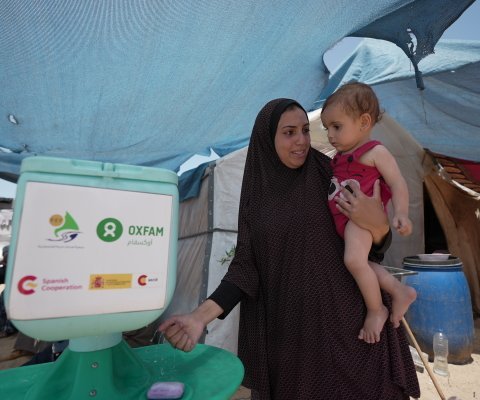The current conflict in Somalia comes at the end of a year that has seen severe drought and widespread flooding hit the country. As a result, 1.4 million people already face chronic food insecurity and 400,000 people have fled their homes. Now conflict is deepening the humanitarian crisis. Oxfam is calling on the international community to use its influence to achieve an immediate ceasefire and a return to the negotiating table.
Oxfam is also calling on the parties to the conflict to uphold international humanitarian law and allow humanitarian agencies access to communities in need.
Currently, Oxfam partners are assisting over 100,000 people in Somalia in response to the recent floods and drought. The response includes distributing food, house-building materials, household utensils and medical supplies.
One of Oxfam's partners, Horn Relief, is delivering plastic sheeting, blankets and jerry cans to 37,200 people in three districts of South Central Somalia, some of the worst affected areas and the most difficult to get to. Horn Relief will also be rehabilitating water sources and providing public health training to women, children and men in the affected areas to decrease the incidence of malaria and diseases that arise from contaminated water supplies.
If the conflict escalates there is the potential for large numbers of refugees to cross the border into Kenya. Oxfam is preparing to respond if necessary and is calling on the Kenyan government and the international community to be prepared to meet the needs of these vulnerable populations by providing adequate food, water and shelter.
Somalia's people live in extremely poor and underdeveloped conditions. Livelihoods are based on subsistence farming and pastoralism with limited opportunity to earn wages. Infant, child and maternal mortality rates are amongst the highest in the world. One in four children dies before reaching the age of five. The average life expectancy in Somalia is estimated at 48 years.
><p>


